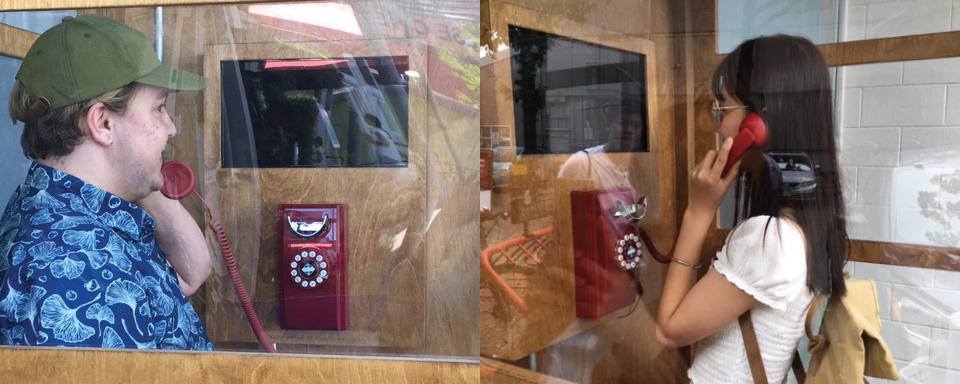
Creating creative exchanges
An interview with Sherry Yoon and Jay Dodge of Boca del Lupo about Red Phone and Plays2Perform@Home
Theatre industries around the world have been experimenting with new ways to connect with drama lovers ever since the pandemic forced doors to close. For Vancouver theatre company Boca del Lupo, productions over Zoom didn’t quite satisfy, so they set out to find ways people could still experience theatre safely in person. Drawing on their experience with micro and immersive performance art, the team of artistic director Sherry Yoon and artistic producer Jay Dodge developed two projects: Red Phone and Plays2Perform@Home, both of which feature new scripts by our authors!
Red Phone takes place between two fully enclosed phone booths that are outfitted with a vintage red phone and an integrated teleprompter. By using the booths two at a time, audience members talk to each other in a five-minute conversation using a script by a Canadian playwright.
The phone boxes are currently on the move—they will visit Montreal (Centaur Theatre) from September 23 to 26 with scripts by Omari Newton and Alice Abracen, St. John’s (RCA Theatre) from October 1 to October 4 with scripts by Sharon Bala and Bridget Canning, and Fredericton (Theatre New Brunswick) from October 13 to 18 with a script by Ryan Griffith (author of Lutz and Fortune of Wolves). For more information, visit bocadellupo.com.
Plays2Perform@Home is a script box set that can be delivered to your home—bringing ten- to twenty-minute-long plays with three to eight characters for your bubble family to perform. Boca del Lupo commissioned scripts from Hiro Kanagawa (author of The Patron Saint of Stanley Park and Indian Arm), Jovanni Sy, Tara Beagan (author of Dreary and Izzy and In Spirit), and Karen Hines.
We spoke to Sherry and Jay about the two projects—why they are important to this historical moment and what the plays are about—plus they’ve shared some Red Phone excerpts from our authors to read below!
Can you tell us a bit more about these two projects and why they matter right now?
Red Phone is actually a five-year-old project. It’s a pre-COVID show that involves initiating one-on-one conversations, inspiring writers to script a conversation they feel people could be having. It works well during our pandemic by creating a container for writers to be creative without the pressure of solely reflecting our current situation. Most of the newly commissioned scripts have an urgency and content that resonates with them… reflecting our current circumstances, and some of the work is creative and not about COVID at all.
Plays2Perform@Home is a piece that is a creative COVID response. The creator/writer is at the centre of the conversation. The p2p@home is a gift for audiences and artists, inviting the writer’s world into their homes. It’s a way that we can hold on to and remember what we love most about live performance. Intimacy, thoughtfulness, emotion. An artist’s job is to reflect what is going on around us. But it can be difficult to reflect when we are in the middle of this unprecedented situation.
We wanted to give an opportunity to be creative during a time where there is so much worry without the pressure of having all the answers. A meaningful artistic exchange.
We hope not to be reactive, but in the moment by creating situations and narratives for the artist to embody and share with their communities.
What are the Red Phone and Plays2Perform@Home plays about?
Red Phone covers a myriad of themes from climate change to Black Lives Matter, to child services and government issues and how they impact the most vulnerable, to speculative future fiction. There are over two dozen scripts with four scripts available in Spanish and French. Play2Perform@Home are four scripts to read with your bubble. They are completely different experiences: a meta-drama, a thriller, a comedy about wokeness and cancel culture, and Beckett meets satire.
How do you think playwrights have been adapting during this time? Do you have any advice for them?
It is an artist’s job to reflect the condition of our time. I think that we all have the need to connect and to be creative. I think the artist is that agent for connection and it is up to organizations and companies to situate the artist and our communities into the centre of that conversation.
Check out these excerpts from Red Phone plays by our authors:
Goodbye My Love by Keith Barker
CHILD: Why are you telling me this?
PARENT: Because you need to hear it.
CHILD: But why now? Is something going on?
PARENT: No, everything’s going to be fine.
CHILD: What do you mean, going to be fine?
PARENT: Nothing. It was just a stupid mistake.
CHILD: Okay, what’s going on? I’m starting to get worried.
PARENT: I don’t want you to be worried.
CHILD: Too late now. Just tell me what’s going on.
It Is So by Tara Beagan
1: Ya. Its history is debated. Maybe because its most direct origin story comes from an Indigenous language.
7: Indigenous to North America?
1: Ya. Choctaw. A term “okeh” meant “it is so.” A fairly neutral affirmative, just as we use it today.
7: Hm.
1: Interesting.
7: Ya.
1: This book says the second most recognizable English word or term globally is “Coca-Cola.”
7: That’s one for capitalism right there.
1: Yeah. The almighty dollar.
7: But “Coca-Cola” doesn’t sound like actual English either.
1: Right. “Coca” is Indigenous to South America. And “cola” from “kola” with a “k.” The kola nut is from West Africa.
Civil War by Yvette Nolan
Red: I just worry that if there’s a civil war down there, people will head north. Here. North. And we will be flooded with—
Blue: Refugees?
Red: American refugees. Americans. Democrats. African-Americans.
Blue: You afraid of Democrats?
Red: How will we feed them? House them? We did such a good job with the Syrian refugees. Blue: I don’t think there’ll be a civil war.
Red: How can you say that?
Blue: Well, a civil war requires—I don’t know—a deeply divided population.
Red: Uh huh.
Helicopters of Truth! by Ryan Griffith
1: Do you remember when you were a kid?
2: Everyone remembers when they were a kid.
1: Do you remember how I use to pick you up from school every day?
2: Every day?
1: After school. How I used to pick you up every day after school. When you were growing up.
2: Not every day.
1: Almost every day.
2: I remember a day where you forgot about me.
1: I don’t remember that day.
You can follow Boca del Lupo on Instagram, Twitter, and Facebook to keep up-to-date with Red Phone and Plays2Perform@Home!
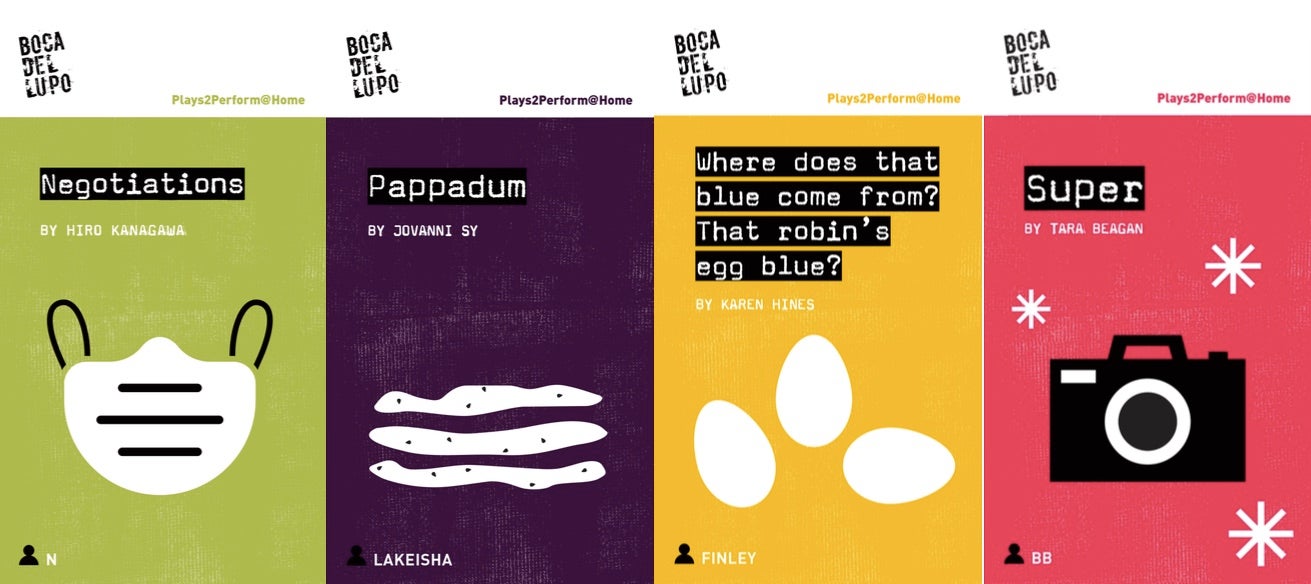
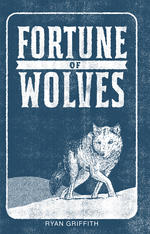
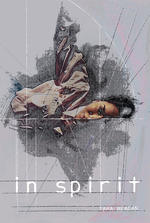


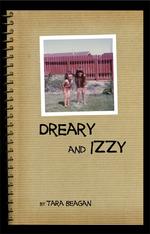


Comments